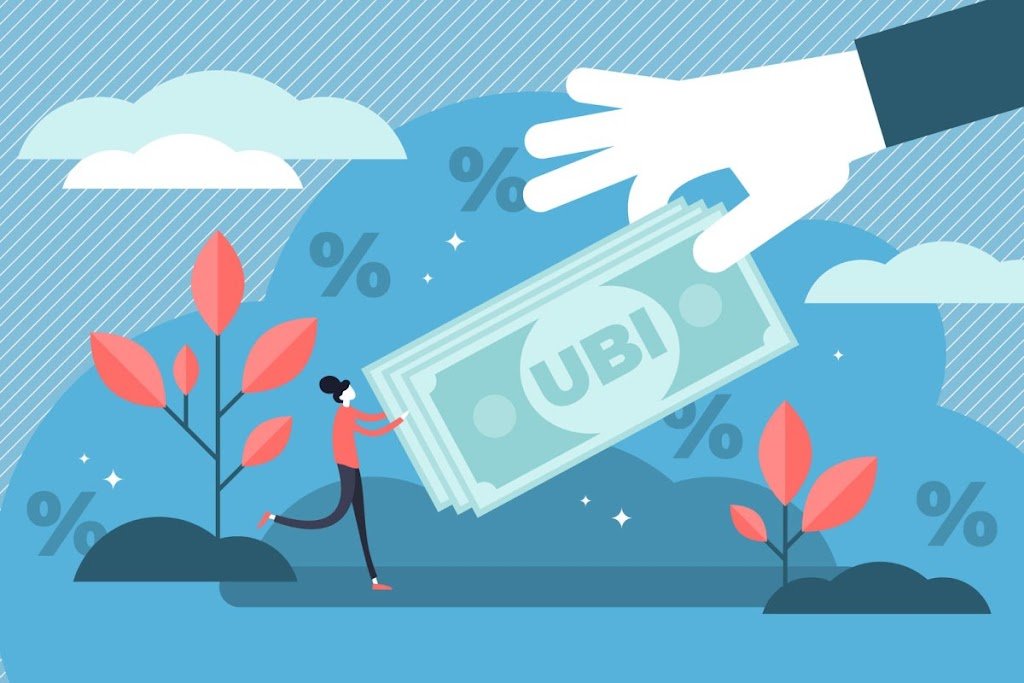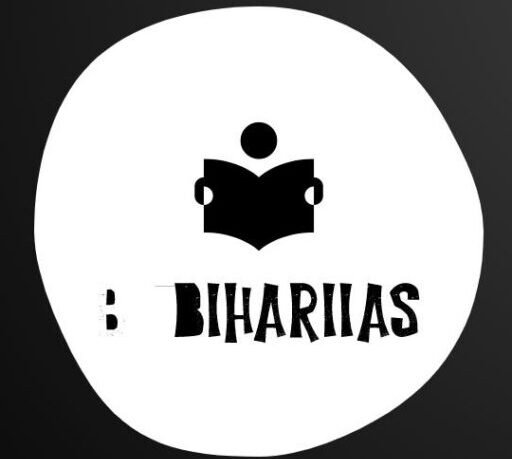
Whether or not to provide Universal Basic Income (UBI) is an idea that doesn’t seem to stop debating. While earlier Chief Economic Advisor (CEA) Arvind Subramanian proposed it as a ‘conceptually attractive idea’ in the Economic Survey of 2016-17, the current CEA V. Ananth Nageswaran has dismissed it saying Given that it is not necessary for the country. Recently, a report on inequality submitted by the Economic Advisory Council to the Prime Minister also recommended a UBI. The provision of a quasi-universal basic rural income was also supported by a member of the NITI Aayog.
सार्वभौमिक बुनियादी आय या यूनिवर्सल बेसिक इनकम (Universal Basic Income- UBI) प्रदान किया जाए या नहीं, एक ऐसा विचार है जिस पर चर्चा थमती नज़र नहीं आ रही। जहाँ पूर्व में मुख्य आर्थिक सलाहकार (CEA) अरविंद सुब्रमण्यन ने वर्ष 2016-17 के आर्थिक सर्वेक्षण में इसे ‘अवधारणात्मक रूप से आकर्षक विचार’ के रूप में प्रस्तावित किया था, तो वहीं वर्तमान CEA वी. अनंत नागेश्वरन ने इसे यह कहते हुए खारिज कर दिया कि यह देश के लिये आवश्यक नहीं है। अभी कुछ समय पूर्व ही प्रधानमंत्री को आर्थिक सलाहकार परिषद (Economic Advisory Council) द्वारा सौंपी गई असमानता पर एक रिपोर्ट में भी UBI की अनुशंसा की गई थी। नीति आयोग के एक सदस्य द्वारा भी अर्द्ध-सार्वभौमिक बुनियादी ग्रामीण आय के उपबंध का समर्थन किया गया था।
The current CEA believes that there is no need for a UBI, as India needs to focus more on economic development to meet the aspirations of its people. He also said that it should not be on the agenda in the near term.
वर्तमान CEA मानते हैं कि UBI की आवश्यकता नहीं है, क्योंकि भारत को अपने लोगों की आकांक्षाओं की पूर्ति के लिये आर्थिक विकास पर अधिक ध्यान देने की ज़रूरत है। उन्होंने यह भी कहा इसे निकट अवधि के एजेंडे में शामिल नहीं होना चाहिये।
[Concept of Universal Basic Income]
Universal Basic Income is a social welfare proposition in which all beneficiaries receive a guaranteed income on a regular basis in the form of unconditional transfer payments. The goals of a basic income system include reducing poverty and replacing other need-based social programs that potentially require more bureaucratic involvement. UBI usually aims to provide access to all (or a very large proportion of the population) without conditions or with minimal conditions.
[सार्वभौमिक बुनियादी आय की अवधारणा]
सार्वभौमिक बुनियादी आय एक सामाजिक कल्याण प्रस्ताव है जिसमें सभी लाभार्थियों को बिना शर्त हस्तांतरण भुगतान के रूप में नियमित रूप से एक गारंटीकृत आय प्राप्त होती है।
एक बुनियादी आय प्रणाली के लक्ष्यों में गरीबी को कम करना और ऐसे अन्य आवश्यकता-आधारित सामाजिक कार्यक्रमों को प्रतिस्थापित करना शामिल है जिसके लिये संभावित रूप से अधिक नौकरशाही संलग्नता की आवश्यकता होती है।
UBI आम तौर पर बिना शर्तों के या न्यूनतम शर्तों के साथ सभी (या आबादी के एक अत्यंत बड़े भाग) तक पहुँच बनाने का लक्ष्य रखती है।
👉(merits and demerits of universal basic income)
– Property/merits
Poverty alleviation: It reduces poverty and income inequality by providing a minimum income threshold for all, especially the most vulnerable and marginalized groups. It provides people with facilities like food, health, education and housing.
A health promoter: Improves physical and mental health by reducing stress, anxiety and depression associated with poverty and financial insecurity. It can also enable people to access better health care, sanitation and nutrition.
Simplified welfare system: It can streamline the existing welfare system by replacing various targeted social assistance programs. It reduces administrative costs and eliminates the complexities associated with means-testing, eligibility requirements and benefit cliffs.
Increased personal freedom: UBI provides people with financial security and greater freedom of choice regarding their work, education and personal life.
Economic Stimulant: It puts money directly into the hands of individuals, which stimulates consumer spending and accelerates economic growth. It can promote local businesses, generate demand for goods and services, and create jobs.
It can empower people to pursue the path of entrepreneurship, take risks and engage in creative or socially beneficial activities that may not be economically viable otherwise.
-Shortcoming/demerits:
Cost and fiscal sustainability: Universal basic income carries high costs and would require higher taxes, spending cuts or debt to finance it. This can generate inflation, distort the labor market, and slow economic growth.
👉(सार्वभौमिक बुनियादी आय के गुण एवं दोष)
– गुण:
गरीबी उन्मूलन: यह सभी के लिये, विशेष रूप से सबसे कमज़ोर और हाशिये पर स्थित समूहों के लिये एक न्यूनतम आय सीमा प्रदान करके गरीबी और आय असमानता को कम करती है। यह लोगों को खाद्य, स्वास्थ्य, शिक्षा और आवास जैसी
एक स्वास्थ्य प्रोत्साहक: गरीबी और वित्तीय असुरक्षा से संबद्ध तनाव, दुश्चिंता और अवसाद को कम करके शारीरिक एवं मानसिक स्वास्थ्य में सुधार लाती है। यह लोगों को बेहतर स्वास्थ्य देखभाल, स्वच्छता और पोषण तक पहुँच बनाने में भी सक्षम कर सकती है।
सरलीकृत कल्याण प्रणाली: यह विभिन्न लक्षित सामाजिक सहायता कार्यक्रमों को प्रतिस्थापित कर मौजूदा कल्याण प्रणाली को सुव्यवस्थित कर सकती है। यह प्रशासनिक लागत को कम करती है और साधन-परीक्षण, पात्रता आवश्यकताओं एवं बेनिफिट क्लिफ (benefit cliffs) से जुड़ी जटिलताओं को समाप्त करती है।
व्यक्तिगत स्वतंत्रता में वृद्धि: UBI लोगों को वित्तीय सुरक्षा और उनके कार्य, शिक्षा एवं व्यक्तिगत जीवन के बारे में चयन की अधिक स्वतंत्रता प्रदान करती है।
आर्थिक प्रोत्साहक: यह प्रत्यक्ष रूप से व्यक्तियों के हाथों में धन का प्रवेश कराती है, जो उपभोक्ता व्यय को उत्प्रेरित करती है और आर्थिक विकास को गति देती है। यह स्थानीय व्यवसायों को बढ़ावा दे सकती है, वस्तुओं एवं सेवाओं के लिये मांग उत्पन्न कर सकती है और रोज़गार के अवसर सृजित कर सकती है।
यह लोगों को उद्यमशीलता की राह पर आगे बढ़ने, जोखिम उठाने और रचनात्मक या सामाजिक रूप से लाभकारी गतिविधियों में संलग्न होने के लिये सशक्त कर सकती है जो अन्यथा आर्थिक रूप से व्यवहार्य नहीं भी हो सकते हैं।
-दोष:
लागत और राजकोषीय संवहनीयता: सार्वभौमिक बुनियादी आय अत्यधिक लागत रखती है और इसके वित्तपोषण के लिये उच्च करों, व्यय में कटौती या ऋण की आवश्यकता होगी। यह मुद्रास्फीति उत्पन्न कर सकती है, श्रम बाज़ार को विकृत कर सकती है और आर्थिक विकास को मंद कर सकती है।
Creation of perverse incentives: It reduces the motivation to work and leads to reduction in productivity and efficiency. It can also create a culture of dependency, entitlement and laziness. It can also discourage people from seeking skills, education and training.
The current Chief Economic Adviser has objected to the UBI because it creates ‘perverse incentives’ to prevent people from making their own efforts to seek income-generating opportunities.
Inflationary pressures: This can contribute to inflationary pressures. If everyone receives a fixed amount, this can lead to an increase in the prices of goods and services as businesses adjust their pricing strategies to capture the additional income available in the market.
Potential to increase dependency: universal basic income can create people’s dependence on government support and involves a risk that some people may become complacent or dependent on basic income, reducing motivation for personal and professional development .
Why is UBI not viable in India?
Affordability/Affordability: India is an emerging country with a large population but limited resources. Here providing a basic income to every citizen can prove extremely costly, especially at a level sufficient to meet their basic needs.
The Economic Survey of 2016-17 estimated that providing a universal basic income of Rs 7,620 per year to every Indian citizen would cost about 4.9% of GDP, more than the combined expenditure on food, fuel and fertilizer subsidies. Is.
To finance the UBI, the government would have to either increase taxes, cut other outlays, or increase borrowing, all of which would have negative consequences for the economy and society.
Political Feasibility: India has a complex and diverse political system with different levels of government, political parties and interest groups. Mobilizing consensus and support for a UBI among various stakeholders such as politicians, bureaucrats, beneficiaries and taxpayers may prove complex.
UBI may also face resistance from those who benefit from existing welfare schemes or those who oppose redistribution on ideological grounds.
Implementation Challenges: India faces several challenges in implementing the delivery and transfer of public services in an effective and efficient manner. There are many issues such as identification, targeting, delivery, monitoring and accountability that affect the quality and reach of existing programmes.
UBI will require reliable data, technology and institutions to be implemented properly and avoid leakages, corruption and exclusion errors.
Furthermore, India has not yet achieved a universal Aadhaar enrolment, so beneficiary identification and target-based delivery of services may pose problems.
Practical Effects: UBI can have unintended or undesirable effects on the behavior of recipients or society at large.
For example, UBI can reduce motivation to work or acquire skills, which can lead to decreased productivity and efficiency.
It can also create a culture of dependency, entitlement or laziness among recipients.
It may also discourage people from participating in social or civic activities that contribute to the common good.
What are the alternatives India can choose instead of UBI?
Quasi-UBRI: Quasi-Universal Basic Rural Income (QUBRI) is a form of universal basic income, defined as a transfer that is provided universally, unconditionally, and in cash. goes. The idea of providing a Direct Cash Transfer of Rs 18,000 per year to every rural household in India (except those that are apparently prosperous and may face agrarian distress) was proposed by the former Chief Economic Adviser I went.
विकृत प्रोत्साहन का निर्माण: यह काम करने की प्रेरणा को कम करती है और उत्पादकता एवं दक्षता में कमी लाती है। यह निर्भरता, पात्रता और आलस्य की एक संस्कृति का भी निर्माण कर सकती है। यह लोगों को कौशल, शिक्षा और प्रशिक्षण प्राप्त करने से भी हतोत्साहित कर सकती है।
वर्तमान मुख्य आर्थिक सलाहकार ने UBI पर आपत्ति जताई है क्योंकि यह आय-सृजन के अवसरों की तलाश के लिये लोगों को अपने स्वयं के प्रयास करने से रोकने में ‘विकृत प्रोत्साहन’ (perverse incentives) का निर्माण करती है।
मुद्रास्फीति संबंधी दबाव: यह मुद्रास्फीति संबंधी दबावों में योगदान कर सकती है। यदि सभी को एक निश्चित राशि प्राप्त होगी तो इससे वस्तुओं एवं सेवाओं के मूल्यों में वृद्धि हो सकती है क्योंकि व्यवसाय बाज़ार में उपलब्ध अतिरिक्त आय पर कब्जा करने के लिये अपनी मूल्य निर्धारण रणनीतियों को समायोजित करते हैं।
निर्भरता बढ़ाने की क्षमता: सार्वभौमिक बुनियादी आय सरकारी समर्थन पर लोगों की निर्भरता का निर्माण कर सकती है और इसमें एक जोखिम शामिल है कि कुछ लोग आत्मसंतुष्ट या मूल आय पर आश्रित बन सकते हैं, जिससे व्यक्तिगत और व्यावसायिक विकास के लिये प्रेरणा कम हो सकती है।
UBI भारत में व्यवहार्य क्यों नहीं है?
सामर्थ्य/वहनीयता: भारत एक बड़ी आबादी लेकिन सीमित संसाधनों वाला उभरता हुआ देश है। यहाँ प्रत्येक नागरिक को बुनियादी आय प्रदान करना बेहद महंगा सिद्ध हो सकता है, विशेष रूप से उस स्तर पर जो उनकी बुनियादी आवश्यकताओं को पूरा करने के लिये पर्याप्त हो।
वर्ष 2016-17 के आर्थिक सर्वेक्षण में अनुमान लगाया गया कि प्रत्येक भारतीय नागरिक को 7,620 रुपए प्रति वर्ष की सार्वभौमिक बुनियाद आय प्रदान करने पर सकल घरेलू उत्पाद का लगभग 4.9% खर्च होगा, जो खाद्य, ईंधन और उर्वरक सब्सिडी पर संयुक्त व्यय से भी अधिक है।
UBI को वित्तपोषित करने के लिये सरकार को या तो करों में वृद्धि करनी होगी, अन्य परिव्ययों में कटौती करनी होगी या उधारी में वृद्धि करनी होगी और इन सभी के अर्थव्यवस्था एवं समाज के लिये नकारात्मक परिणाम उत्पन्न होंगे।
राजनीतिक व्यवहार्यता: सरकार के विभिन्न स्तरों, राजनीतिक दलों और हित समूहों के साथ भारत में एक जटिल एवं विविध राजनीतिक व्यवस्था मौजूद है। राजनेताओं, नौकरशाहों, लाभार्थियों और करदाताओं जैसे विभिन्न हितधारकों के बीच UBI के लिये आम सहमति एवं समर्थन जुटाना जटिल सिद्ध हो सकता है।
मौजूदा कल्याणकारी योजनाओं से लाभान्वित होने वालों या वैचारिक आधार पर पुनर्वितरण का विरोध करने वालों द्वारा भी UBI को प्रतिरोध का सामना करना पड़ सकता है।
कार्यान्वयन संबंधी चुनौतियाँ: भारत को सार्वजनिक सेवाओं के वितरण और हस्तांतरण को प्रभावी एवं कुशल तरीके से कार्यान्वित करने में कई चुनौतियों का सामना करना पड़ता है। पहचान, लक्ष्यीकरण, वितरण, निगरानी और उत्तरदायित्व जैसे कई मुद्दे हैं जो मौजूदा कार्यक्रमों की गुणवत्ता एवं पहुँच को प्रभावित करते हैं ।
UBI को विश्वसनीय डेटा, प्रौद्योगिकी और संस्थानों की आवश्यकता होगी ताकि इसे उपयुक्त रूप से कार्यान्वित किया जा सके और लीकेज, भ्रष्टाचार एवं अपवर्जन त्रुटियों से बचा जा सके।
इसके अलावा, भारत ने अभी तक एक सार्वभौमिक आधार नामांकन हासिल नहीं किया है, इसलिये लाभार्थी की पहचान और सेवा के लक्ष्य-आधारित वितरण में समस्या उत्पन्न हो सकती है।
व्यावहारिक प्रभाव: UBI का प्राप्तकर्ताओं या वृहत रूप से समाज के व्यवहार पर अनपेक्षित या अवांछनीय प्रभाव पड़ सकता है ।
उदाहरण के लिये, UBI कार्य करने या कौशल हासिल करने की प्रेरणा को कम कर सकती है, जिससे उत्पादकता एवं दक्षता में कमी आ सकती है।
यह प्राप्तकर्ताओं के बीच निर्भरता, पात्रता या आलस्य की संस्कृति भी उत्पन्न कर सकती है।
यह लोगों को उन सामाजिक या नागरिक गतिविधियों में भाग लेने से भी हतोत्साहित कर सकती है जो साझा भलाई में योगदान करती हैं।
UBI के स्थान पर भारत कौन-से विकल्प चुन सकता है?
Quasi UBRI: अर्द्ध-सार्वभौमिक बुनियादी ग्रामीण आय (Quasi-Universal Basic Rural Income- QUBRI) सार्वभौमिक बुनियादी आय का एक रूप है, जिसे ऐसे हस्तांतरण के रूप में परिभाषित किया गया है जो सार्वभौमिक रूप से, बिना शर्त और नकद रूप में प्रदान किया जाता है। भारत में प्रत्येक ग्रामीण परिवार को (उन परिवारों को छोड़कर जो प्रकट रूप से समृद्ध हैं और कृषि संकट का सामना कर सकते हैं) 18,000 रुपए प्रति वर्ष का प्रत्यक्ष नकद हस्तांतरण (Direct Cash Transfer) प्रदान करने का विचार पूर्व मुख्य आर्थिक सलाहकार द्वारा प्रस्तावित किया गया था।
Direct Benefits Transfers (DBT): Under this scheme subsidy or cash is transferred directly to the bank accounts of the beneficiaries (instead of taking the help of middlemen or transfer in the form of goods or services ). DBT aims to reduce leakages and corruption while improving the efficiency, transparency and accountability of welfare delivery.
Schemes like PM Kisan, Pradhan Mantri Jan-Dhan Yojana are excellent examples of the success of DBT.
Conditional Cash Transfers (CCT): Under this scheme, cash is provided to poor families on the condition that they fulfill certain conditions such as sending their children to school, getting them vaccinated or attending health check-ups. do. CCT aims to improve human capital and long-term outcomes of the poor as well as encourage behavior change.
Other Income Support Schemes: Under these schemes, assistance in cash or kind is provided to specific groups of people like farmers, women, old people, differently abled who are in need of it. These schemes are aimed at addressing the specific vulnerabilities and challenges faced by these groups, while simultaneously promoting their empowerment and inclusion.
Employment Guarantee Schemes: India already has a successful example of this with MGNREGA. These schemes provide legal guarantees of employment to rural households for a specified number of days in a year. Expansion and strengthening of such programs can ensure that individuals have access to employment opportunities and can earn a livelihood.
Skill development and training: Investment in skill development and vocational training programs can equip individuals with the necessary skills to ensure sustainable employment. By focusing on skill enhancement, the government can enable individuals to find suitable jobs and improve their income prospects.
Pradhan Mantri Kaushal Vikas Yojana (PMKVY), Deen Dayal Upadhyaya Grameen Kaushalya Yojana (DDU-GKY) and Pradhan Mantri Rozgar Protsahan Yojana (PMRPY) etc. should be implemented effectively.
Universal Basic Services: India could prioritize the provision of essential services such as education, health care, clean water and sanitation, rather than focusing on providing a universal basic income. By ensuring access to these services for all citizens, the government can improve overall living standards and reduce inequality.
Asset-creation policies: These are policies that aim to help low-income people accumulate assets such as savings, education, housing, or business capital. They may include matching funds, tax incentives, subsidies or grants for asset accumulation. Proponents of asset-creation policies argue that they can better promote long-term economic security, social mobility, and empowerment of low-income people than UBIs. Along with this, they can also promote the culture of savings and investment.
Inclusive development: Rather than providing people with a fixed amount, the focus should be on creating more opportunities and capabilities for them to participate and contribute to the economy and society. Inclusive development also addresses the structural causes of poverty and exclusion—such as discrimination and lack of access to education, health, infrastructure and social protection.
प्रत्यक्ष लाभ अंतरण (Direct Benefits Transfers- DBT): इस योजना के तहत सब्सिडी या नकद को प्रत्यक्ष रूप से लाभार्थियों के बैंक खातों में हस्तांतरित किया जाता है ( बजाय इसके कि बिचौलियों की मदद ली जाए या वस्तु या सेवाओं के रूप में हस्तांतरण किया जाए)। DBT का उद्देश्य कल्याणकारी वितरण की दक्षता, पारदर्शिता एवं जवाबदेही में सुधार के साथ-साथ लीकेज और भ्रष्टाचार को कम करना है।
पीएम किसान, प्रधानमंत्री जन-धन योजना जैसी योजनाएँ DBT की सफलता के उत्कृष्ट उदाहरण हैं।
सशर्त नकद हस्तांतरण (Conditional Cash Transfers- CCT): इस योजना के तहत गरीब परिवारों को इस शर्त पर नकद राशि प्रदान की जाती है कि वे अपने बच्चों को स्कूल भेजने, उनका टीकाकरण कराने करना या स्वास्थ्य जाँच में भाग लेने जैसी कुछ शर्तों की पूर्ति करेंगे। CCT का उद्देश्य मानव पूंजी और गरीबों के दीर्घकालिक परिणामों में सुधार के साथ-साथ व्यवहार परिवर्तन को प्रोत्साहित करना है।
अन्य आय सहायता योजनाएँ: इन योजनाओं के तहत किसानों, महिलाओं, वृद्धजनों, दिव्यांगों जैसे लोगों के ऐसे विशिष्ट समूहों को नकद या अन्य प्रकार की सहायता प्रदान की जाती है जो इसकी आवश्यकता रखते हैं। इन योजनाओं का उद्देश्य इन समूहों के समक्ष विद्यमान विशिष्ट भेद्यताओं और चुनौतियों का समाधान करना है, साथ ही साथ उनके सशक्तीकरण एवं समावेशन को बढ़ावा देना है।
रोज़गार गारंटी योजनाएँ: मनरेगा (MGNREGA) के साथ भारत के पास पहले से ही इसका एक सफल उदाहरण मौजूद है। ये योजनाएँ ग्रामीण परिवारों को एक वर्ष में निश्चित दिनों के लिये रोज़गार की कानूनी गारंटी प्रदान करती हैं। ऐसे कार्यक्रमों का विस्तार और सुदृढ़ीकरण यह सुनिश्चित कर सकता है कि व्यक्तियों की रोज़गार अवसरों तक पहुँच हो और वे आजीविका कमा सकें।
कौशल विकास एवं प्रशिक्षण: कौशल विकास एवं व्यावसायिक प्रशिक्षण कार्यक्रमों में निवेश से व्यक्तियों को स्थायी रोज़गार सुनिश्चित करने हेतु आवश्यक कौशल से लैस किया जा सकता है। कौशल संवर्द्धन पर ध्यान केंद्रित करके सरकार व्यक्तियों को उपयुक्त नौकरी खोजने और अपनी आय संभावनाओं में सुधार करने में सक्षम बना सकती है।
प्रधानमंत्री कौशल विकास योजना (PMKVY), दीन दयाल उपाध्याय ग्रामीण कौशल्य योजना (DDU-GKY) और प्रधानमंत्री रोज़गार प्रोत्साहन योजना (PMRPY) आदि का प्रभावी कार्यान्वयन किया जाना चाहिये।
सार्वभौमिक बुनियादी सेवाएँ (Universal Basic Services): भारत एक सार्वभौमिक बुनियादी आय प्रदान करने पर ध्यान केंद्रित करने के बजाय शिक्षा, स्वास्थ्य देखभाल, स्वच्छ जल और स्वच्छता जैसी आवश्यक सेवाओं के प्रावधान को प्राथमिकता दे सकता है। सरकार सभी नागरिकों के लिये इन सेवाओं तक पहुँच सुनिश्चित कर समग्र जीवन स्तर में सुधार ला सकती है और असमानता को कम कर सकती है।
परिसंपत्ति-निर्माण नीतियाँ: ये ऐसी नीतियाँ हैं जिनका उद्देश्य निम्न आय वाले लोगों को बचत, शिक्षा, आवास या व्यावसायिक पूंजी जैसी परिसंपत्ति का संचयन करने में मदद करना है। उनमें मैचिंग फंड, कर प्रोत्साहन, सब्सिडी या संपत्ति संचय के लिये अनुदान शामिल हो सकते हैं। परिसंपत्ति-निर्माण नीतियों के समर्थकों का तर्क है कि वे UBI की तुलना में बेहतर ढंग से दीर्घावधिक आर्थिक सुरक्षा, सामाजिक गतिशीलता और निम्न आय वाले लोगों के सशक्तीकरण को बढ़ावा दे सकते हैं। इसके साथ ही, वे बचत और निवेश की संस्कृति को भी बढ़ावा दे सकते हैं।
समावेशी विकास: लोगों को एक निश्चित राशि प्रदान करने के बजाय उनके लिये अधिक अवसर और क्षमताओं के निर्माण पर ध्यान देना चाहिये ताकि वे अर्थव्यवस्था और समाज में भागीदारी एवं योगदान कर सकें। समावेशी विकास गरीबी और अपवर्जन के संरचनात्मक कारणों—जैसे भेदभाव और शिक्षा, स्वास्थ्य, अवसंरचना एवं सामाजिक सुरक्षा तक पहुँच की कमी आदि को भी संबोधित करता है।
Source-financial express









